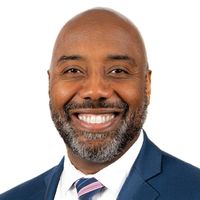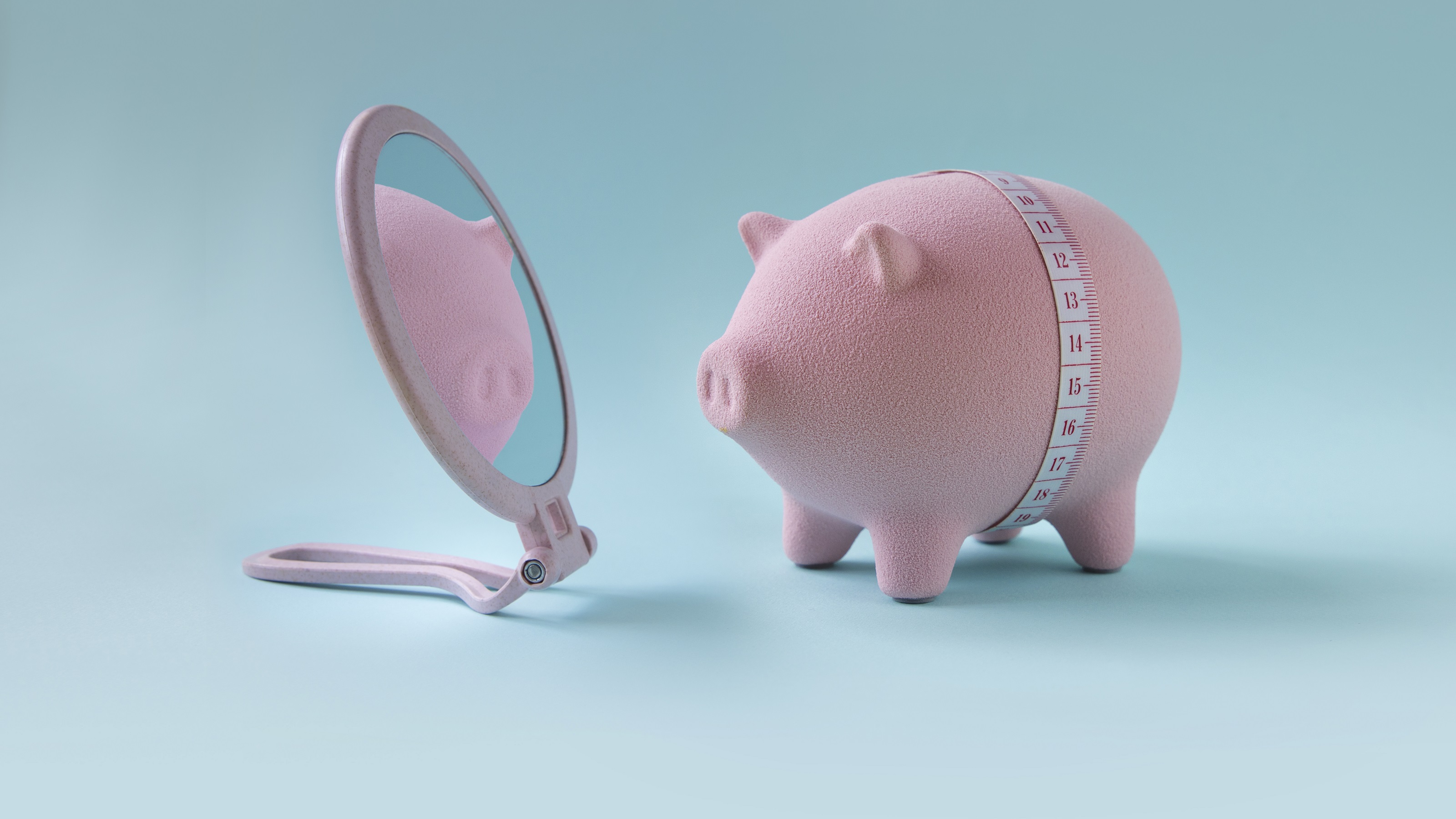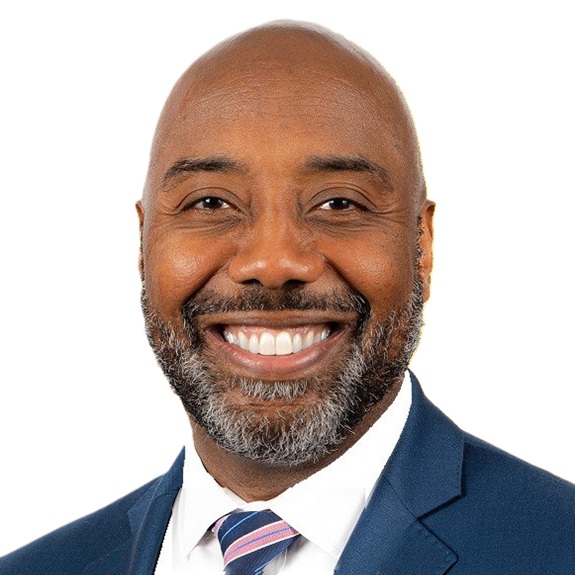Financial Fasting Can Trim the Fat From Your Spending
Taking a day or a week off from spending not only frees up cash to pay down debt or add to savings, but can also help you reinvest in your relationships. Here’s how to do it.


Profit and prosper with the best of Kiplinger's advice on investing, taxes, retirement, personal finance and much more. Delivered daily. Enter your email in the box and click Sign Me Up.
You are now subscribed
Your newsletter sign-up was successful
Want to add more newsletters?

Delivered daily
Kiplinger Today
Profit and prosper with the best of Kiplinger's advice on investing, taxes, retirement, personal finance and much more delivered daily. Smart money moves start here.

Sent five days a week
Kiplinger A Step Ahead
Get practical help to make better financial decisions in your everyday life, from spending to savings on top deals.

Delivered daily
Kiplinger Closing Bell
Get today's biggest financial and investing headlines delivered to your inbox every day the U.S. stock market is open.

Sent twice a week
Kiplinger Adviser Intel
Financial pros across the country share best practices and fresh tactics to preserve and grow your wealth.

Delivered weekly
Kiplinger Tax Tips
Trim your federal and state tax bills with practical tax-planning and tax-cutting strategies.

Sent twice a week
Kiplinger Retirement Tips
Your twice-a-week guide to planning and enjoying a financially secure and richly rewarding retirement

Sent bimonthly.
Kiplinger Adviser Angle
Insights for advisers, wealth managers and other financial professionals.

Sent twice a week
Kiplinger Investing Weekly
Your twice-a-week roundup of promising stocks, funds, companies and industries you should consider, ones you should avoid, and why.

Sent weekly for six weeks
Kiplinger Invest for Retirement
Your step-by-step six-part series on how to invest for retirement, from devising a successful strategy to exactly which investments to choose.
We’ve heard about the supposed benefits of fasting for physical health, but have you considered financial fasting to address your financial wellness?
The idea is simple: Don’t spend money during a set period of time, or in a particular expense category, such as entertainment or dining.
From the outset, financial fasting sounds easy. In practice, it can be anything but.
From just $107.88 $24.99 for Kiplinger Personal Finance
Become a smarter, better informed investor. Subscribe from just $107.88 $24.99, plus get up to 4 Special Issues

Sign up for Kiplinger’s Free Newsletters
Profit and prosper with the best of expert advice on investing, taxes, retirement, personal finance and more - straight to your e-mail.
Profit and prosper with the best of expert advice - straight to your e-mail.
That’s because spending is often disconnected from the values and intentions of near-retirees. Unlike Millennials and Gen Zers, prior generations have generally had fewer qualms about purchasing products and services from companies that don’t align with their principles. The act of swiping a credit card can feel as routine and trivial as opening a door. And as Baby Boomers retire, some are tempted to treat every day like a Saturday — chockful of travel plans, reservations and shopping.
Financial fasting can put the value of a dollar back into perspective, shoring up your bank account and breaking the habit of mindless spending. By doing so, it can force you to reassess your values and reconnect with those closest to you.
In what follows, I’ll explain the many ways financial fasting can positively impact your lifestyle — and how to plan your first financial fast.
The benefits of financial fasting
Financial fasting can be a reset button — not only for your finances, but for your values, sense of purpose and even your relationships. Here are a few ways that limiting your spending can change your financial well-being for the better.
1. Pay down debt faster.
The most obvious benefit of financial fasting is that it frees up cash flow fairly quickly. But that doesn’t mean that you should simply spend all that money once you break your financial fast. Consider using that moment as an opportunity to pay down debt at an accelerated rate — especially high-interest obligations like credit card debt and car loans.
2. Break the cycle of senseless spending.
We spend for different reasons. Some people lavish their grandkids with expensive gifts, while others continually chase the latest fashion trends, no matter the cost. The problem is, many people don’t recognize why they’re purchasing certain things — and that the reasons for buying them may fall apart under scrutiny.
Buying possessions, for instance, tends to provide happiness for only a short period time, but a meaningful experience can be more rewarding over the long term.
Because financial fasting pushes the pause button on spending, it can make you think longer about why you wanted to buy something in the first place.
In time, you’ll become more adept at fulfilling those needs without spending, or realize when those impulses are not needs at all. For example, if you want to spend time with your significant other, a walk along the beach or in a park may be a better, expense-free way to do that, vs going to the movies.
3. Align your purchase decisions with your values.
Financial fasting is also an opportunity to bring your spending in line with your own personal values. Growing up, many Baby Boomers like me just went to work. We put our heads down. Spending wasn’t necessarily connected to purpose or passion but providing for ourselves or others.
This can be a time to take a page from younger generations and think about the impact of your purchase decisions. If you are passionate about social awareness and responsibility, consider the many items you purchase from large companies. Should you redirect those dollars to other businesses that may have a greater impact on your local community?
As you come out of a financial fast, you’ll find yourself at a crossroads, asking: Do I continue spending the way I have in the past, or try to be the change I want to see in the world?
4. Create a space to reconnect in our relationships.
Some instinctually feel that in order to do something, you need to spend something. But when it comes to our relationships, quality time is what matters most. Some types of spending can disconnect you from those important connections, instead of creating space for you to engage with your loved ones in a meaningful way.
For example, some leisure activities — like attending plays, visiting theme parks or going to concerts — don’t actually require people to talk to each other. And costly gifts are hardly a substitute for personal connection. Unfortunately, many of our spending habits, while well-meaning and born out of kindness, fail to deepen our relationships.
Planning free activities, on the other hand, requires you to creatively collaborate with your family members and friends, fostering a sense of spontaneity and adventure. And many of the activities that don’t involve spending require us to remain in the moment, listen to others respectfully and appreciate their presence.
How to plan a financial fast
Financial fasting can be as stringent as abstaining from spending for a week, or as measured as skipping lunch during the workweek. What’s most important to recognize is that financial fasting can be accomplished in degrees to accommodate your comfort level and needs.
- Go through your budget. Start by identifying the areas where you’re spending the most — eating out, going to movies — and the days in which you’re spending the most. This will help you target your fast and also give you ideas about how to occupy your time during a fast. Someone who regularly goes to an art museum on Sunday, for example, may instead choose to attend free art exhibitions in the area.
- Plan to start small. Just like physical fasting, financial fasting is a muscle. Begin by cutting out expenses that are easy to track. That regular Friday date night at the local bistro could turn into dinner and a movie at home, for instance. Once you’ve mastered those smaller targets, then you can take a stab at an entire day without spending and, ultimately, even an entire week.
- Don’t expect an overnight change. At first, you may feel as if you’re needlessly depriving yourself. But after fasting for a while, you’ll start to come out of each fast with a renewed appreciation for what money is — its purpose, significance and impact on the lives of others. That sense of connection will change how you spend that first dollar coming out of a fast.
Reshaping your relationship with money
Once you’ve incorporated financial fasting into your daily life, you’ll realize how much the world has to offer outside of indiscriminate spending. It can help refocus your financial priorities, reel in addictive spending habits and even inspire you to financially support causes you believe in.
The difficulties associated with financial fasting are not unsubstantial — but the joys it can bring to your life, and those around you, are well worth the effort.
This article has been obtained and is provided as a courtesy by Stephen B. Dunbar III, JD, CLU, Executive Vice President of the Georgia Alabama Gulf Coast Branch of Equitable Advisors, LLC. Equitable Advisors and its associates and affiliates make no representation as to the accuracy or completeness of this information, nor do they endorse, approve, or make any representations as to the accuracy, completeness, or appropriateness of any part of any content linked to from this article. You should consult your own financial professional regarding your particular circumstances.
Stephen Dunbar offers securities through Equitable Advisors, LLC (NY, NY 212-314-4600), member FINRA, SIPC (Equitable Financial Advisors in MI & TN), offers investment advisory products and services through Equitable Advisors, LLC, an SEC-registered investment advisor, and offers annuity and insurance products through Equitable Network, LLC (Equitable Network Insurance Agency of California, LLC; Equitable Network Insurance Agency of Utah, LLC; Equitable Network of Puerto Rico, Inc.). Not all financial professionals are duly registered and licensed in all states to offer all products and services. GE-5934902.1(09/23)(exp.09/25)
related content
- Four Ways to Navigate the Bumps of Today’s Volatile Market
- Tempted to Make Rash Financial Decisions? Do This Instead
- How Can I Prepare for an Unexpected Financial Emergency?
- Three Smart Money Moves to Make This Fall
- How to Embrace Your Financial Wellness This Fall
Profit and prosper with the best of Kiplinger's advice on investing, taxes, retirement, personal finance and much more. Delivered daily. Enter your email in the box and click Sign Me Up.

Stephen Dunbar, Executive Vice President of Equitable Advisors’ Georgia, Alabama, Gulf Coast Branch, has built a thriving financial services practice where he empowers others to make informed financial decisions and take charge of their future. Dunbar oversees a territory that includes Georgia, Alabama and Florida. He is also committed to the growth and success of more than 70 financial advisers. He is passionate about helping people align their finances with their values, improve financial decision-making and decrease financial stress to build the legacy they want for future generations.
-
 Ask the Tax Editor: Federal Income Tax Deductions
Ask the Tax Editor: Federal Income Tax DeductionsAsk the Editor In this week's Ask the Editor Q&A, Joy Taylor answers questions on federal income tax deductions
-
 States With No-Fault Car Insurance Laws (and How No-Fault Car Insurance Works)
States With No-Fault Car Insurance Laws (and How No-Fault Car Insurance Works)A breakdown of the confusing rules around no-fault car insurance in every state where it exists.
-
 7 Frugal Habits to Keep Even When You're Rich
7 Frugal Habits to Keep Even When You're RichSome frugal habits are worth it, no matter what tax bracket you're in.
-
 For the 2% Club, the Guardrails Approach and the 4% Rule Do Not Work: Here's What Works Instead
For the 2% Club, the Guardrails Approach and the 4% Rule Do Not Work: Here's What Works InsteadFor retirees with a pension, traditional withdrawal rules could be too restrictive. You need a tailored income plan that is much more flexible and realistic.
-
 Retiring Next Year? Now Is the Time to Start Designing What Your Retirement Will Look Like
Retiring Next Year? Now Is the Time to Start Designing What Your Retirement Will Look LikeThis is when you should be shifting your focus from growing your portfolio to designing an income and tax strategy that aligns your resources with your purpose.
-
 I'm a Financial Planner: This Layered Approach for Your Retirement Money Can Help Lower Your Stress
I'm a Financial Planner: This Layered Approach for Your Retirement Money Can Help Lower Your StressTo be confident about retirement, consider building a safety net by dividing assets into distinct layers and establishing a regular review process. Here's how.
-
 The 4 Estate Planning Documents Every High-Net-Worth Family Needs (Not Just a Will)
The 4 Estate Planning Documents Every High-Net-Worth Family Needs (Not Just a Will)The key to successful estate planning for HNW families isn't just drafting these four documents, but ensuring they're current and immediately accessible.
-
 Love and Legacy: What Couples Rarely Talk About (But Should)
Love and Legacy: What Couples Rarely Talk About (But Should)Couples who talk openly about finances, including estate planning, are more likely to head into retirement joyfully. How can you get the conversation going?
-
 How to Get the Fair Value for Your Shares When You Are in the Minority Vote on a Sale of Substantially All Corporate Assets
How to Get the Fair Value for Your Shares When You Are in the Minority Vote on a Sale of Substantially All Corporate AssetsWhen a sale of substantially all corporate assets is approved by majority vote, shareholders on the losing side of the vote should understand their rights.
-
 How to Add a Pet Trust to Your Estate Plan: Don't Leave Your Best Friend to Chance
How to Add a Pet Trust to Your Estate Plan: Don't Leave Your Best Friend to ChanceAdding a pet trust to your estate plan can ensure your pets are properly looked after when you're no longer able to care for them. This is how to go about it.
-
 Want to Avoid Leaving Chaos in Your Wake? Don't Leave Behind an Outdated Estate Plan
Want to Avoid Leaving Chaos in Your Wake? Don't Leave Behind an Outdated Estate PlanAn outdated or incomplete estate plan could cause confusion for those handling your affairs at a difficult time. This guide highlights what to update and when.